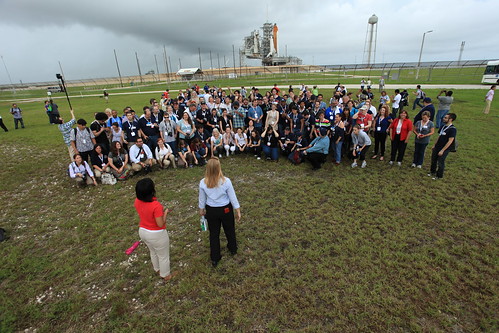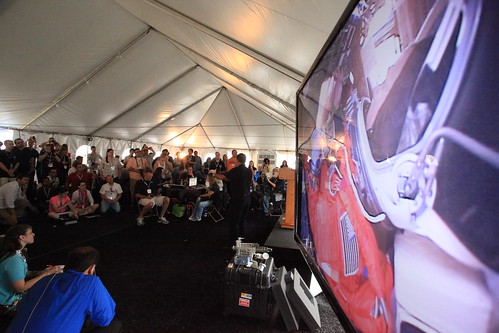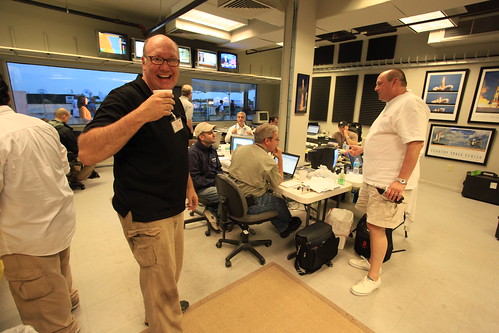Overview
E-mail, personal computers, and the Internet: These products of the information age have become common currency among working professionals. They make your life simpler by enabling faster communication, providing tools for more effective work, and giving you access to vast information with the click of a mouse. But they also introduce a risk factor that isn't totally within your control: If your computer fails or the network connection goes down, you lose time and possibly money.
What You'll Do
That's where information technology (IT) specialists come in. Information technology brings you the information and applications-such as word-processing, spreadsheet, and presentation software-that office workers everywhere rely on to do their jobs. IT specialists create such products and set up and maintain such systems. Their work varies widely: They upgrade your computer software; get your office computer network, or your computer, up and running again after it crashes; set up and maintain the servers on which your company's internal applications run; create and customize the software products you use; build websites; and build and maintain the databases that you rely on to gather information to serve your customers.
Who Does Well
IT professionals wear many hats and go by different names, depending on their area of expertise-engineer, programmer, website producer, and network administrator, to name a few. The range of IT jobs is vast. And the skills needed to set up an office network-install the cables, configure the computers, and keep them running-are quite different from those required to set up and customize an automated-payroll software system. A database specialist needs still other skills to administer the ever-changing complex of information generated by enterprise software applications and the company website, including files on visitors who have signed on as members or purchased something.
But no matter what job they do, all IT professionals focus on improving the usability and efficiency of technological systems and processes. Their goal is a smoothly functioning computer network-free of bugs, glitches, and interruptions-that provides an effective flow of information so the company can keep on improving its work processes, customer retention and acquisition, and other aspects of its business.
Requirements
There's a broad range of jobs in IT, and not all positions require technical skills. "The best tech support people we had," one insider says, "had humanities backgrounds." Technical, communication, and business skills are all important to the field, and four-year college degree programs-not necessarily in computer science-are still one of the best ways to prepare for entering the IT job market.
Employers look for relevant skills and experience. A degree in computer science tends to be most important for database developers and software engineers. Certificate programs are more common for support and system administration specialists (see the "Certification" section that follows for more information). On-the-job experience can substitute for either academic credential, though for people just entering the job market, a degree is a tremendous advantage. Computer science majors and MBAs in particular might consider a minor or double major in a second field. Though not required, this additional credential can be useful, particularly when working in IT for non-IT companies. For example, a biology minor will prove very handy to a software developer working with an insect database at a university research center. Because IT is part of so many industries, a secondary field can be anything that interests you-film, chemistry, history; whatever your interest, it's likely that it will complement an industry searching for IT workers.
Certification
First-time job seekers as well as seasoned professionals may wonder whether a professional certification is worth the time and cost. Today's employers and employees generally find that certifications are valuable, though skepticism does exist. Some employers use certifications as a gating factor when hiring. Whether a certificate program is right for you depends on your career goals, the job market, and whether an employer is willing to bear some or all of the cost.
A certificate is almost always a prerequisite for a job in information security, and a number of common acronyms appear beside the names of successful security professionals: CCSE (CheckPoint Certified Security Expert), CCSA (Check Point Certified Security Administrator), CISSP (Certified Information Systems Security Professional), or SCSE (Symantec Certified Security Engineer). Network and system administrators are also increasingly turning to certification programs like those offered by Microsoft and Red Hat. According to a study conducted by Foote Partners LLC, employees with networking certificates receive higher pay premiums than employees with noncertified networking skills (certified workers received an average 9.2 percent premium compared to a 7.1 percent premium for those with noncertified skills). Employees with vendor certifications from places like Cisco or Novell tend to receive higher compensation than employees with non-vendor certifications (from the Institute for Certification of Computing Professionals, for example). However, insiders say that non-vendor certification is often more helpful than vendor-specific certification to employees just starting out in the field.
Certificates are less important for software engineers and database administrators, for whom experience and college credentials are still the most important credential. Those who can point to previous work-even a well-executed school assignment-have a competitive edge, and a degree in computer science is often a job prerequisite.
Education is not a process that ends when you land a job. Part of working in IT is learning new technologies. Since the field is constantly changing and evolving, today's hot tech skills identified by Dice. com-C++, Java, and Oracle-are just that. Next year, the list of desirable skills will change. However careful you are at selecting your skills, you'll need to update them and pick up new ones over the course of your career.
Continuing education can take many forms: classes, conferences, certifi cate programs, or independent research. Books, periodicals, and online discussions and boards are very useful, and most technologies have an online community of users. "I go to Jguru.com to keep on top of things," one insider says. "People post new stuff there all the time." For those who prefer the printed page, your reference library will continue to grow (and become dated). O'Reilly publishes a very highly regarded line of books that covers the gamut of information technologies. Ultimately, whether you choose to pursue a certifi cation is less important than keeping abreast of technologies-and, of course, churning out work that proves you know your stuff.
Job Outlook
The worldwide credit crunch of 2007 and 2008 has affected prosperity across all sectors, with some analysts predicting a recession. While the IT industry has continued to grow, it has not gone unscathed. Forrester, a notable IT research firm, recently revised its forecast for U.S. IT spending (reflecting business and government IT operational budgets) from 6.4 percent to 5.2 percent. Less consumer spending hurts the job market, and while the U.S Bureau of Labor Statistics projects that some IT positions (such as database administrators) will likely continue to experience faster-than-average growth, others (such as programmers) are expected to decline.
Globally, the picture looks a little brighter, at least for the immediate future. Total global spending on technology goods, services, and staff will reach $2.4 trillion in 2008, an 8 percent increase from 2007. Phenomenal industry growth is still occurring in Asia Pacific and oil exporting regions of Eastern Europe, the Middle East, and Africa. In Australia, Leon Lau of Peoplebank, the country's largest technology recruiter, told iTWire, "We are very confident for 2008 and 2009." Even the U.K. reports no detectable slowdown in this sector, with a demand for IT workers in the country at its highest level since the end of 2001, according to a recent report by the Recruitment and Employment Confederation.
If you're looking for an IT career in the U.S. or abroad, staying adaptable and open to possibilities will improve your chances of thriving in an economic downturn. Whether you're a recent college graduate with a BA in computer science or an MBA looking to get involved with a new technology firm or product, the possibilities for growth and employment are as numerous and varied as the fish in the sea. You may need to cast a line out to catch one-the family business that's looking to hire an e-commerce manager isn't likely to recruit on your college campus-but jobs are out there.
There will be plenty of competition for entry-level jobs in 2008-09, yet the information technology field is rife with opportunity. Because technology is always improving and computers are becoming faster and more powerful, companies will continue to invest in new technology that makes their companies run more efficiently and less expensively, and to replace outmoded IT infrastructures.
As John Longwell, a researcher at Computer Economics in Irvine, California, recently told Advance, a magazine for health information executives, "IT managers are clearly under pressure to restrain the growth of IT budgets this year. We will likely see restraints on new hiring and decreased use of contract workers." Because the competition can be tough, it's important to differentiate yourself. Unpaid or underpaid internships can make a huge difference on your resume. Good references and a solid work history are necessities.
Career Tracks
Creative Positions
Technical Producer
Degree requirements: BA or MBA
Job description: The producer acts as both the nerve center and lightning rod. For projects such as entertainment software, the producer is like the director of a movie, setting the tone as well as the overall look and feel, and taking responsibility for the final version. All the art, content, administrative, and other decisions go through the producer-it can be stressful but rewarding when it works. The producer may report to the product manager, who's in charge of commercial concerns, or to a technical manager.
Web Developer
Degree requirement: BA
Job Description: Web developers are masters of HTML, and they know how to create Web pages that will look good in any browser on any platform. In addition to knowing applications such as Photoshop, Illustrator, and Flash, a Web developer understands databases, JavaScript, XML-and how to work with both designers and engineers. Tight deadlines can make this work tough at times, but for those who love to work with rapidly evolving tools and challenges, this job is ideal.
Webmaster
Degree requirement: BA
Job description: Smaller companies in particular tend to roll the areas of Web architecture, design, implementation, and management into one position: the webmaster. Webmasters may even be responsible for content creation and editing, working in conjunction with marketing. If you hold this job, be prepared to know and do a little bit of everything.
Engineering Positions
QA Engineer
Degree requirements: BS in computer science, MS preferred
Job description: A good QA engineer has to think of every stupid, silly, and accidental thing a customer might do to and with a product, from using a keyboard in the bathtub to clicking 1,000 times repeatedly on an ornamental on-screen widget. In some work environments this can be fun, but often it's a strictly regimented process, usually on a tight deadline as a product moves from pre-alpha to final release. QA people support product teams, track bugs, and write documentation.
Software Engineer
Degree requirements: BS in computer science (MS preferred for senior position)
Job description: Junior software engineers mainly do the dirty work of inputting code, connecting application modules and functionalities, debugging, and porting to other OS platforms. However, the junior position is a stepping-stone to the senior position, which offers the potential of having a say in the end product. Senior engineers also work with end users, OEM customers, and others; they also take a more supervisory role in team structure.
Application Programmer
Degree requirements: BS in computer science
Job description: This type of programmer/engineer works specifically on a particular application that will either end up as a shrink-wrapped product or as a module that will interact with final products. This position entails documentation, product development,
and product integration-one example would be writing or revising software that addresses a specific task, such as calibrating color monitors.
Database Administrator
Degree requirement: BS in computer science or equivalent experience
Job description: Database administrators, or DBAs, participate in database design and maintain, develop, and test database environments. Often, the DBA is responsible for making backups and ensuring that information is recoverable in the event of a disaster.
Administrators may also plan, coordinate, and implement security measures to safeguard information. It's also crucial to have the right certifications to get your foot in the door-these are often more important than academic degrees.
Support Positions
Technical Support Analyst, Entry Level
Degree requirement: None (BA or BS preferred)
Job description: This is the front line-tech support is an entry-level position, dealing directly with customers who are likely disgruntled, usually over the phone. It's volume work. Though working knowledge of the product is vital, so are patience, communication skills, and the ability to deal with unhappy people without making them more unhappy.
Software Support Engineer
Degree requirement: BS in computer science
Job description: Sometimes promoted from the ranks of tech support, this job also includes elements of sales in that it's more involved with onsite and other direct support of clients. As a result, this position requires knowledge of the client's needs and the ability to troubleshoot and act independently.
IT Training Consultant
Degree requirements: BS in computer science, specialized training preferred
Job description: Most large software and hardware installations aren't just a set-up-and-go proposition, so companies that sell servers, back-end systems, ERM/ERP solutions, and the like employ IT staff members who introduce the client to the product. And it's not just for arcane, complex items either-training consultants also get sales, marketing, and other executives up to speed on new systems.
Management Information Systems (MIS)
Degree requirement: BS in computer science or electrical engineering
Job description: High-tech companies don't just sell the stuff-they use it, too. Working in MIS means handling hardware, software, and networks, all to help the organization running as efficiently as possible. It's kind of a jack-of-all-trades position, but it does provide exposure to a wide skill set that could translate well to a number of more specialized career paths. To land this kind of position, the right certifications-for example, a Microsoft Certified Systems Engineer (MCSE) certification-are also extremely important.
System Administrator
Degree requirement: BA or certificate program
Job description: The most valuable traits in a sysadmin are a willingness to take things apart and the patience to put the pieces together again. System administrators design, test, and evaluate data communications systems such as local area networks. A system administrator may also be asked to research and recommend network hardware and software. Beware: This can be a thankless job. People never say, "Hey, my phone works today. Awesome!" But if something goes down, you'll hear all about it.
Information Security Specialist
Degree requirement: BS in computer science
Job description: Information security specialists are responsible for securing data, devices, and networks against unauthorized external and internal access. In addition to designing and maintaining a set security standard and policy, the information security specialist ensures that the policies are adhered to by all. Remember to change your password!
Compensation
Compensation varies widely in IT jobs depending on skills, company size, company location, and industry. However, the following median salary ranges were typical in 2008:
. Application programmer or analyst: $67,000 to $80,000
. Database administrator: $71,000 to $94,000
. Management information systems: $86,000 to $120,000
. Quality assurance analyst/engineer, entry-level: $47,000 to $60,000
. Software engineer, entry-level: $48,000 to $60,000
. System administrator: $60,000 to $80,000
. Technical support, entry-level: $42,000 to $60,000
. Technical producer: $41,000 to $60,000
. Training consultant: $42,000 to $60,000
. Web developer, front end, entrylevel: $40,000 to $60,000
. Webmaster: $50,000 to $80,000






 It’s been cleared to take to the skies for more than a year - but that’s not much use when you’re supposed to be able to drive it, too. But now the flying car has at least been declared officially road legal.
It’s been cleared to take to the skies for more than a year - but that’s not much use when you’re supposed to be able to drive it, too. But now the flying car has at least been declared officially road legal.












